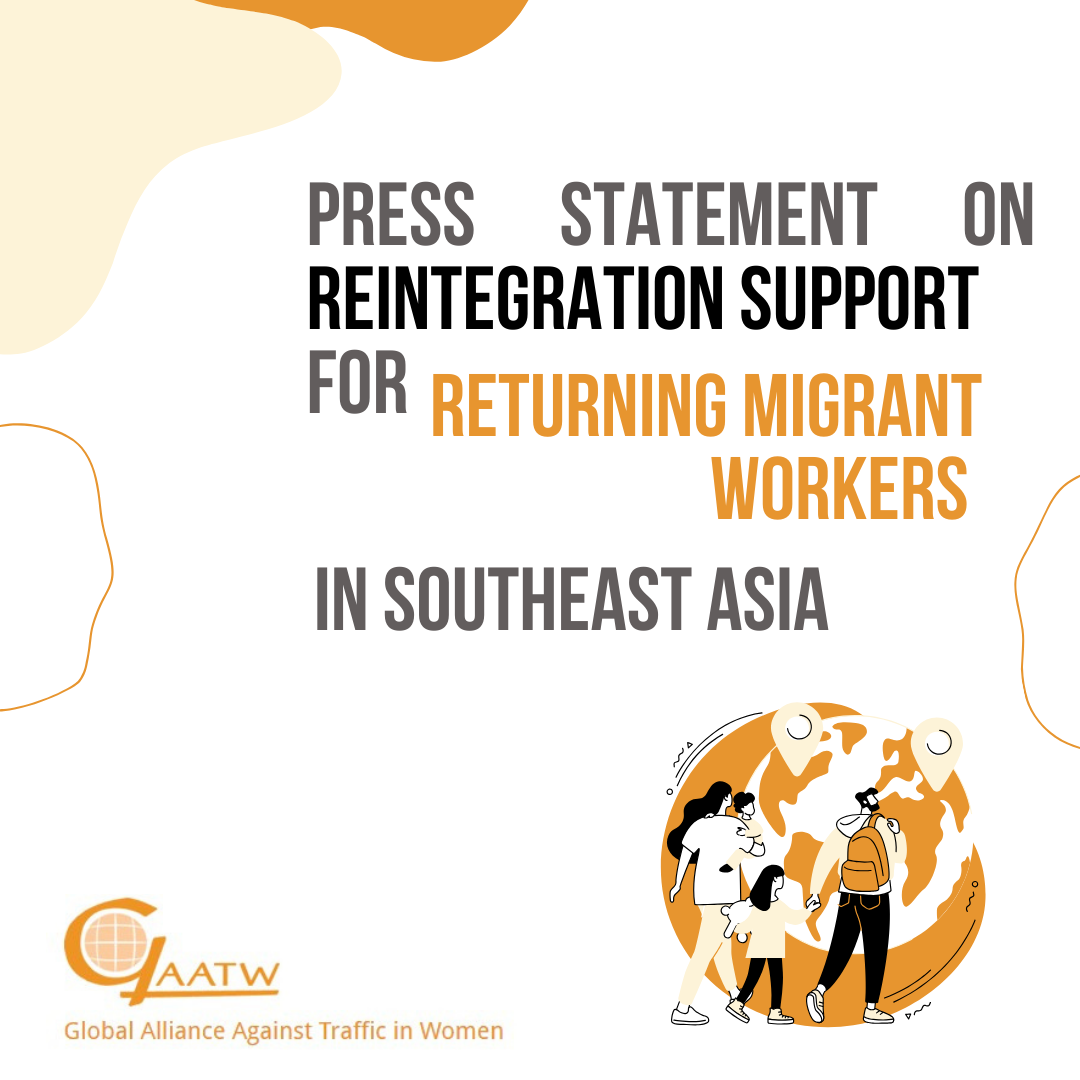
In 2023, the Global Alliance Against Traffic in Women (GAATW) together with ten partner organisations from Southeast Asia and Europe researched Southeast Asian migrant women’s experience of migration to Europe, and of their reintegration at home upon return. Using a Feminist Participatory Action Research methodology, our research partners spoke with 329 Southeast Asian migrant workers in Europe and 121 returnees in Southeast Asia.
We found that in Southeast Asia, reintegration support for returning migrants varied from country to country but was generally insufficient. It was usually limited to training schemes, assistance to trafficking victims, and short-term financing schemes for self-employment. Furthermore, the business-focused nature of reintegration programmes presents individualistic solutions to what are often structural problems within the country and region. We found that what returning migrants most needed, but could not find, were stable, well-paid jobs and access to affordable, long-term psychosocial counselling and financial advice.
To build on the findings of this research, this week GAATW and Blas F. Ople Policy Center and Training Institute (OPLE Center) carried out a two-day consultation involving 18 civil society organisations seven countries (Cambodia, Indonesia, Laos, the Philippines, Thailand, the United Kingdom, and Vietnam). We discussed the effectiveness of reintegration programmes and what policymakers and civil society can do to better meet the needs of returnee migrant women workers.
This consultation enabled an unprecedented dialogue among stakeholders concerned with the reintegration of returnee migrant workers in Southeast Asia, bringing together civil society representatives, women migrant leaders, and other actors to discuss reintegration challenges, successes, and best practices.
Over the course of these two-day discussions, we identified 10 priority demands to the Governments of Southeast Asian countries:
- A regional referral mechanism between ASEAN member states should be established for the purposes of cooperating to assist migrant workers in distress. This referral mechanism should involve civil society organisations, particularly migrant worker organisations.
- Programmes and services of the national government agencies should be localised for easier and faster accessibility.
- Cooperation between destination and origin countries should be enhanced through binding agreements that recognise and respect the rights of migrant workers and include provisions for reintegration of returnee migrant workers.
- Returnee migrant workers should be consulted in the design and implementation of pre-employment and pre-departure programmes so that they are relevant and based on their knowledge and experience.
- Migrant workers’ experiences and analysis must be included in the design and implementation of all government, NGO and private sector initiatives are for migrant workers.
- Reintegration programmes must be tailored to the diverse and long-term needs of returnee migrant workers.
- Social protection schemes should be made portable and the minimum contribution rates must be lowered to ensure that all migrant workers can access these schemes.
- Access to services and programmes for human trafficking victims and complaints mechanisms must be available to all migrant workers, including those who migrated irregularly.
- Governments should conduct public awareness campaigns to increase the recognition of migrant women’s contributions to society and counter the social stigma towards those perceived to have “failed” in their migration.
- Governments should simplify requirements for accessing reintegration programmes and support and popularise them to ensure that returnee migrants workers know about them and can access them.
For more information and for media enquiries please contact Maya Linstrum Newman, Advocacy and Policy Lead at GAATW International Secretariat,
